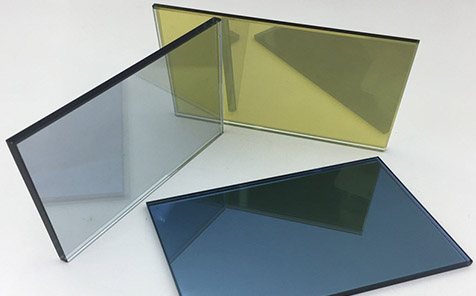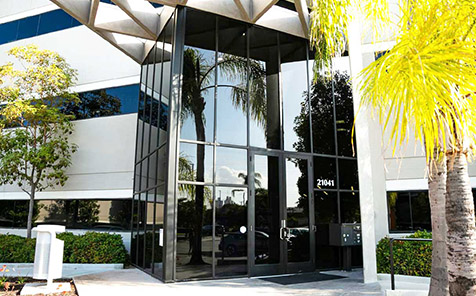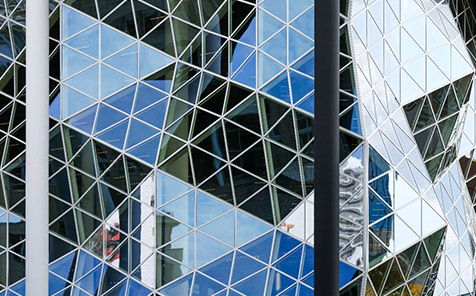Reflective glass is a processed glass that reflects more amount of light and provides a mirror-like finish. Reflective glass helps a building to achieve a high standard of visual appeal by reflecting a greater amount of heat than normal tinted float glass, bringing brilliant colours and fine details to life.
Reflective glass is clear or tinted glass that has a very thin layer of metal or metallic oxide on the surface. The reflective coating is applied during the float process. The thicker the glass is, the less light will pass through the window.
Advantages of Reflective Glass
- Privacy
As it reflects natural light, reflective glass provides privacy in commercial and residential buildings
- Glare Control
It reduces glare from direct sun, which eliminates the need for blinds and other window coverings
- Visual Appearance
The appearance of the reflective glass on your building’s exterior will change as the light source changes from morning to evening
Disadvantages of Reflective Glass
- Visibility
The visible light transmission is less than float glass. So more artificial lighting should be used inside the buildings for adequate lightings
- Heat Sensitivity
In winters, it can block the essential solar heat. So we may have to spend more amount on room heating during winters
Applications
Reflective glass or mirror glass has wide applications in interior and exterior designs. It is widely used in bathrooms, dressing rooms, living rooms in interior applications and used in facades and paneling for large buildings
Related Products
- Address
No.3 Beishang New City, GongShu District, Hangzhou China
-
Phone
+86-18072735884
-
Landline
+86-571-88688170

 English
English









